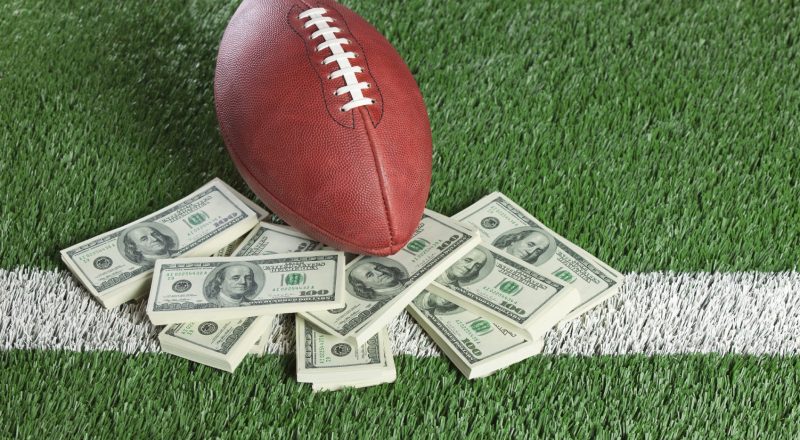Sports betting, which capitalizes on the enthusiasm of sports enthusiasts, is one of the most well-liked types of gambling. Fans can demonstrate their understanding of a sport or their allegiance to a certain club or rival by placing a wager on a race or game.
Read more: The Best Mobile Betting Sites
Sports betting can enliven otherwise dull or one-sided competitions in addition to encouraging camaraderie among friends when handicapping systems offering odds and point spreads raise the bettors’ stake in the match.
The majority of wagering on athletic contests is illegal and is done through bookmakers, also known as bookies (working as individuals or for crime organizations), and Internet gambling operations, despite the fact that legal sports betting is becoming more and more popular (which are legal in some countries).
The most popular type of sports betting is horse racing, although football games, including soccer, rugby, and Australian rules football, are also the subject of significant gambling. Boxing, basketball, baseball, cricket, ice hockey, dog and camel racing, and jai alai are among more sports where there is a lot of betting.
Types of betting
Winner take all wagering on the outcome of a competition is likely the earliest type of wager. Odds betting, one of the most popular types of sports gambling today, involves a casino or bookmaker assessing the competitors in a match and determining the likelihood of victory: 2 to 1, 5 to 1, 1 to 4, and so on.
For instance, if a bettor stakes $1 on a 2-to-1 underdog and the underdog wins, they will win $2. A winning wager on the favorite delivers a smaller payout; for instance, a $5 wager on a 2-to-5 favorite results in a $2 payout. Today, baseball and boxing both frequently use odds betting.
A pari-mutuel betting system is used for most sporting events (like jai alai) and most races (like those involving horses, dogs, and camels). This system, which was implemented in 1865 after Frenchman Pierre Oller created the “totalizator,” uses a calculator to record the amount wagered on each contender before the competition begins.
For instance, in horse racing, the “totalizator” computes the odds based on the share of the total wager placed on each horse and decides how much should be paid to those who correctly predicted the winner. A portion of the entire amount wagered is taken by the bookmaker or track owner as their cut.
The majority of basketball games and football (soccer, gridiron football, rugby, etc.) games use a point spread system. The number of points that will be used as a spread for a specific game is decided by bookmakers. The bettor must cede (or give) the point spread while placing a wager on the favorite team.
The point spread is given to the bettor when they wager on the underdog team. When an underdog team is staked as +4, for instance, four points are added to its final score in order to determine who won the wager. Only if the favorite team wins by more than four points does a 4 bet on that team pay off (or goals in the case of soccer).
In addition, there is mixed systems betting. In ice hockey, wagers are placed with odds when extra goals are scored (or surrendered). In soccer, odds are frequently set based on the final result. Betting on the combined scores of both teams is one of the many other options available.
This bet is known as a “over/under” wager because the bookmaker predicts the total number of points for a game, and the bettor chooses to wager on either the “over” (i.e., the total number of points will exceed the predicted amount) or the “under” (total points will fall short of the predicted amount). A team’s chances of winning the title are predicted at the start of a sports season. The term “parlay bet” refers to a combination of many wagers.
Fantasy leagues and pools are two additional well-liked forms of sports betting. Although large-scale versions of these activities are increasingly being operated by Internet-based businesses, they are still mostly arranged by friends and coworkers.
Pools can be lotteries with numbers that win if they match a complete or partial score, predictions of the results of competitions or the week’s schedule of games, or both. In fantasy leagues, participants choose real athletes for a “fantasy team” before a game (or season) starts. The winner is the bettor who has the top players in terms of particular statistics.
If bettors possess superior knowledge of athletes and teams, which many sports fans feel they have (sometimes incorrectly), then sports gambling can be consistently profitable. Sports are widely covered in the media, and there are many information services available. This gives gamblers a sense of control and confidence, which motivates them to place bets. Even when they lose, they continue to wager, attributing their losses to unlucky circumstances or subpar efforts by the players, coaches, or referees.
Ethical concerns
The majority of bettors believe that players give their best effort when competing. A sport can be severely harmed by even the smallest hint that the athletes are “on the take” or “throwing” games or matches for financial gain. In the 19th century, as interest in professional sports increased, so did concerns that gambling would taint the competition.
Unregulated gambling did in fact frequently draw criminals wanting to make quick money, and this led to numerous scandals. The majority entailed paying sportsmen to deliberately lose games or, in the case of basketball and football, to “shave” points—that is, to win by a smaller margin than predicted.
The Black Sox Scandal, in which eight Chicago White Sox players were accused of throwing the 1919 World Series, was one of the most well-known of these scandals. Numerous bribery scandals rocked intercollegiate basketball in the United States during the 1950s. The rampant corruption in later decades first affected the German and Italian football (soccer) competitions. Due to its history of involvement with organized crime groups that have encouraged prizefighters to “take dives,” professional boxing has long been stigmatized.
With the exception of horse and dog racing and a few other sports, gambling has been prohibited during the modern period of sports. Indeed, in order to safeguard the general public and the integrity of competitive competition, governments and sports organizations have implemented stringent antigambling policies and legislation.
However, despite being illegal, sports gambling has never lost any of its appeal. By the second half of the 20th century, many countries were seeking for ways to legalize gambling without succumbing to the corruption that often seems to go hand in hand with it. The obvious solutions, according to pro-gambling organizations, were legalization and regulation. Gambling was made legal in Great Britain in 1960.
Some forms of sports gambling were permitted in the United States while others were forbidden due to variances in state and federal laws. After federal taxes on legal gambling were lowered in 1983, sports betting grew. The proceeds from lotteries and betting pools are utilized in Germany and many other nations to fund amateur sports.
Despite legality, scandals involving gambling continue to plague the sports industry. In a 1999 poll, it was shown that 5 percent of male college players in the United States who bet on sports also provided information to gamblers. It was discovered in 2002 that British jockey club members had rigged races by giving horses illegal medications and providing insider information to bettors.
It was claimed in 2004 that Italian soccer players tampered with games to aid international gamblers placing massive bets. However, the legal gaming sector is keen to point out that the majority of scandals involve illegal gambling. In fact, Nevada casinos have cooperated with federal authorities looking into corruption and have offered important information on scandals, arguing that the largest threats to the integrity of the games come from unregulated bookies and Internet gambling.



